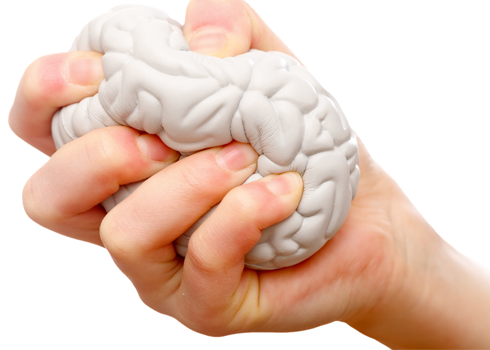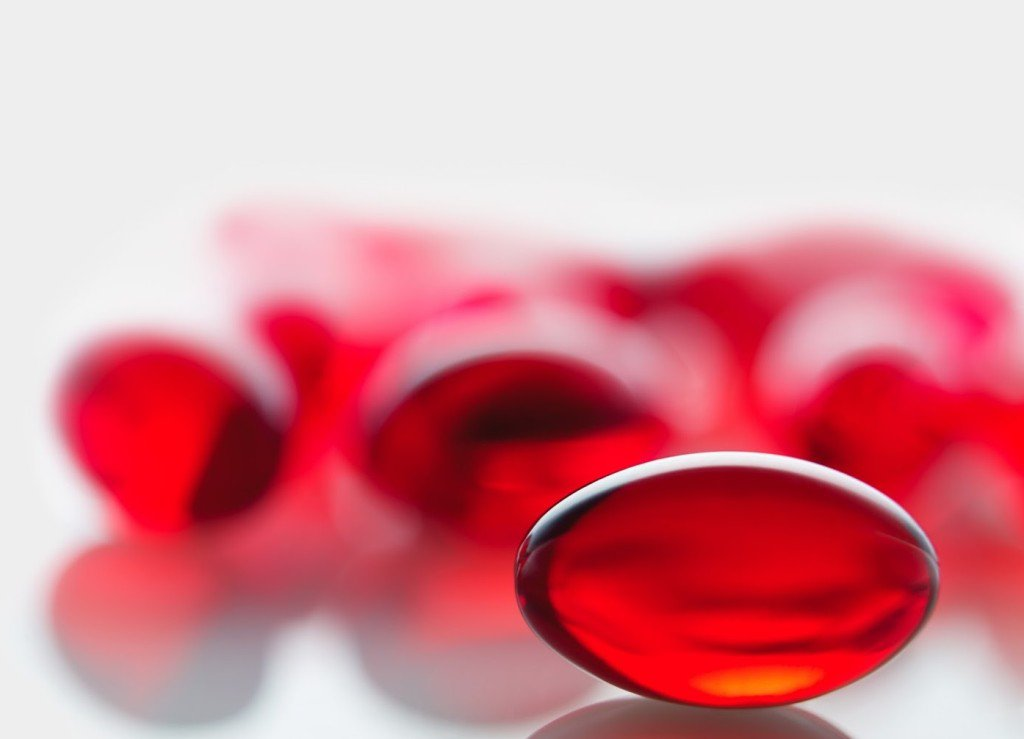Chronic stress is killer.
It broke me down over the years and led me to deep depression.
Getting a handle on it has been critical to my recovery.
But it took me a while to figure out what works.
And I’d rather not see other people struggle and frantically look for solutions.
So I’ve gathered some of my favourite ways to quickly lower levels of cortisol, your body’s main stress hormone.
But before we get to them, let’s quickly discuss cortisol and how chronically high levels of cortisol can negatively affect your brain and mental health.
How Stress and Cortisol Affect Your Brain
Cortisol is known as the “stress hormone”.
It’s a naturally-occurring steroid hormone that’s produced by your adrenal glands and released when you’re under physical or mental stress. Essentially, it triggers our fight-or-flight response in stressful situations.
But it’s also absolutely necessary for our health, as it plays a key role in many different bodily processes.
Cortisol levels are generally highest in the morning and lowest at night. But problems can arise when they are elevated for prolonged periods of time (134).
Chronically high cortisol levels can:
Change the size, structure and functioning of your brain;
Shrink and kill brain cells;
Cause premature aging in the brain;
Contribute to memory loss and lack of concentration;
Slow down our ability to grow new brain cells; and
Increase inflammation in the brain (135-140).
Watch this TED-Ed video, “How Stress and Cortisol Affect Your Brain,” to learn more:
Chronic stress and high levels of cortisol also increase activity in the amygdala, the fear centre of the brain. This can create a vicious cycle in which the brain is more likely be get stuck in a constant state of fight-or-flight.
When I did neurofeedback, my practitioner discovered my amygdala was overactive. She trained it back down to normal levels, and my chronic anxiety dissipated.
Anxiety isn’t the only mental condition linked to an abnormal stress response. Here are some others:
Bipolar disorder;
Borderline personality disorder;
Insomnia;
ADHD;
Anorexia;
Bulimia;
Alcoholism; and
Dementia and cognitive impairment (135-150).
Luckily, there are a number of ways to manage and overcome chronic stress, lower cortisol levels, reverse damage done to the brain, and improve your sense of wellbeing.
This article includes the best foods, nutrients, herbs and supplements that reduce cortisol; as well as the best lifestyle habits, therapies and practices that reduce cortisol.
Let’s go through them.
The Best Foods, Nutrients, Herbs and Supplements To Naturally Lower Cortisol Levels
1. Eat Dark Chocolate
Most people know that dark chocolate is rich in multiple antioxidants, such as flavonols and polyphenols, which reduce oxidative stress.
But it also reduces cortisol.
This may explain why people love to eat chocolate and experience relaxation when they do.
Dark chocolate can protect your brain by boosting BDNF, your brain’s growth hormone.
You should always try to get raw dark chocolate with the least amount of sugar.
2. Drink Tea
Several different types of tea have beneficial effects on cortisol levels.
Green tea has been shown to inhibit the synthesis of cortisol (18).
And a study found that individuals who drank 4 cups of black tea daily for six weeks had lower cortisol levels in comparison to others who didn’t drink black tea (2).
Researchers couldn’t confirm what caused this reduction in cortisol, but they suspected it had something to do with the high content of theanine, an amino acid found in both black and green tea.
A follow-up study published this year confirmed that theanine can reduce cortisol (13).
Theanine produces a calming effect on the brain by crossing the blood-brain barrier and increasing the production of both GABA and dopamine in the brain (12).
I personally can’t drink most teas because they tend to contain mycotoxins (mold toxins) and I’m very sensitive to them after living in a moldy home.
If you’ve lived in a moldy home or have found out that you’re genetically susceptible to mycotoxins, you can supplement with straight theanine like I do.
This supplement includes theanine.
And if you do decide to drink black tea, you can lower cortisol even more by getting decaffeinated black tea.
Lastly, chamomile tea is another type of tea that can decrease cortisol. It’s been used for centuries as a sleep aid. It contains flavonoids, essential oils, coumarin and other compounds that can help you relax.
Several studies show it can block the precursor hormone of cortisol and improve sleep quality (14, 15).
This anti-anxiety supplement includes theanine, along with a number of other natural compounds that have helped me manage my stress and anxiety over the years.
3. Eat Extra Virgin Olive Oil
Olive oil has numerous health benefits, particularly because of its strong anti-inflammatory effects.
It also contains a compound called oleuropein, which can reduce cortisol levels (37).
I add it to my salads and sometimes even take a tablespoon of it straight.
Be careful though. A lot of cheap extra virgin olive oil in grocery stores are not actually “extra virgin.”
Investigations have found that there is a lot of fraud within the olive oil industry and many so-called extra virgin olive oils contains other cheaper, refined vegetable oils, such as soybean, corn and canola.
This is discussed more in the book Extra Virginity: The Sublime and Scandalous World of Olive Oil.
4. Take Cortisol-Reducing Nutrients and Herbs
There are a number of nutrients, vitamins, minerals and adaptogenic herbs that have been shown to reduce stress and cortisol levels.
I’ll go over some of my favourites here.
Phosphatidylserine is probably the best option for reducing stress hormone levels.
Phosphatidylserine is a fat-soluble amino acid compound that plays a key role in optimal cognitive function. High amounts of phosphatidylserine can be found within the brain, and supplementation has been shown to improve attention and memory, especially in the elderly (114-116).
“…consumption of phosphatidylserine may reduce the risk of dementia and cognitive dysfunction in the elderly.”
On top of all this, phosphatidylserine powerfully lowers cortisol (117-119).
People who supplement with phosphatidylserine have been shown to have lower average levels of cortisol (120).
I take phosphatidylserine every day. It's part of the Optimal Calm supplement.
Ashwagandha is another great cortisol-reducing supplement. It’s a popular Indian herb commonly used to prevent anxiety. Its anti-anxiety effect is synergistic with alcohol.
Its stress-reducing effects are likely because it lowers cortisol levels.
Multiple studies have concluded that it is a potent stress reliever that can reduce cortisol by anywhere from 14 to 32% (121-123).
Ashwagandha is included in this supplement.
Another adaptogenic herb that can lower cortisol is rhodiola.
I’ve discussed rhodiola before. It can really help with symptoms of depression.
Research has found that it may be doing this by significantly reducing stress hormone levels in the body (124-126).
Lastly, a number of minerals have been shown to reduce cortisol, including zinc, magnesium and selenium (96, 97, 127-133).
That’s why I take and recommend a multi-mineral supplement every day.
Overall, ashwagandha, rhodiola, phosphatidylserine and minerals are my favourite ways to keep stress levels low, but there are plenty of other supplements that have been shown to positively affect cortisol levels, including:
N-Acetyl-Cysteine (95)
Ginseng (98, 99)
Tribulus (100)
Bacopa (101)
Schisandra (102, 103)
Ginkgo Biloba (104)
Lemon Balm (106)
Holy Basil (107)
5. Consume Enough Food, Protein and Water
Eating enough protein and calories, and drinking enough clean, filtered water is also critical to keeping stress hormone levels low.
Studies show that severely restricting calories elevates cortisol levels (108, 109).
Restricting protein and depriving yourself of the amino acid leucine can also stimulate the stress response and increase stress hormones (110).
That’s why I eat plenty of food each day and supplement with creatine and BCAA protein powder throughout the day when I don’t have access to a source of high-quality protein.
Lastly, make sure you stay hydrated and drink plenty of water.
Properly-hydrated runners have noticeably lower cortisol levels than dehydrated runners (81).
I use a high-quality filtration system to filter my water so that it’s as pure as possible.
6. Consume More Omega-3s and Less Omega-6s
As I’ve discussed before, omega-3s are dietary fats that are needed for the proper functioning of your brain and nervous system. They improve learning and memory, and protect against psychiatric disorders including depression, mild cognitive impairment, dementia and Alzheimer's disease (4-7).
Researchers have also found that when individuals supplement with omega-3 fatty acids, there is a significant reduction in the release of cortisol (1, 10).
Omega-3 fatty acids also significantly reduce stress hormones in animals (3).
Krill oil is my favourite source of omega-3 fatty acids.
I also eat wild salmon and grass-fed beef on a regular basis.
On the other hand, consuming too many omega-6 fatty acids have been linked to increased inflammation and cortisol levels (8, 9, 11).
So make sure to avoid refined vegetable oils such as soybean, corn, safflower, sunflower, and canola oil.
7. Get Enough Antioxidants
Not only do antioxidants counteract oxidative stress within the body; they can also help reduce cortisol (19, 25).
Most of the research has been done in athletes, but supplementation with antioxidants – such as berry powders, greens powders, vitamin C, glutathione and CoQ10 – leads to fairly significant reductions in cortisol and other measures of stress (20-23).
Dark berries in particular contain antochyanins, which have been shown to lower cortisol (24).
Acai berries are my favourite, as they are loaded with antochyanins and vitamin C.
Regarding vitamin C, the research is mixed on whether it can consistently lower cortisol levels.
However, in my experience, high doses of vitamin C definitely reduce stress.
One study found that a high dose of vitamin C decreases anxiety and improves mood (29).
After exercise, it’s also been shown to rapidly reduce cortisol (26, 27).
And multiple other studies have found that both vitamin C and vitamin E reduce cortisol and anxiety (30-32).
It’s also well known that chronic stress and high cortisol can deplete vitamin C and other antioxidant enzymes (28).
In addition to getting vitamin C from fruits and vegetables, I take at least 500 mg of supplemental Vitamin C every day. I’ve experimented with taking up to 10 grams daily (2 gram doses throughout the day) and it helped me manage stress, but it’s not necessary unless you find it really helps you.
Vitamin C and Vitamin E are both included in this supplement, along with several other antioxidant nutrients.
8. Take Curcumin
Curcumin is the most heavily researched compound within turmeric, the spice that gives curry its yellow colour.
Curcumin is one of my favourite compounds for the brain and mental health.
Thousands of high-quality scientific studies have been published, showing that curcumin has anti-inflammatory and antioxidant effects and can increase BDNF, your brain’s growth hormone.
Research shows that curcumin inhibits the increase in cortisol caused by stress (33, 34).
And animal studies have found that curcumin may reverse elevated cortisol levels after chronic stress (35, 36).
Unfortunately, curcumin is very inefficient at absorbing into the bloodstream and reaching the brain (54, 55).
Luckily, science and technology has been able to concentrate significant amounts of curcumin into supplement form and increase its bioavailability.
I get my curcumin from the Optimal Energy supplement.
Since curcumin is a fat soluble, I take it every day with a fatty meal.
9. Eat Prebiotic Foods
Prebiotics are substances in food that humans can't digest, so they pass through our gastrointestinal tract and promote the growth of many different strains of good bacteria in our lower bowel.
They are essentially food for the probiotics in our intestines.
Dr. Phil Burnet, a neurobiologist at Oxford University, published a paper in 2015 showing that people who ingested prebiotics have lower levels of cortisol.
The people who ingested prebiotics also focused more on positive feedback and less on negative stimuli.
Dr. Burnet said the results were very similar to when people take anti-depressants and anti-anxiety medication, but without the side effects (87).
That’s why I eat prebiotic-rich foods regularly, including sweet potatoes, carrots, onions, asparagus and squash. These foods are included in my free grocery shopping guide for optimal brain health.
Resistant starch is one of the most potent ways to boost your prebiotic intake. A convenient way to incorporate more of it into your diet is by using and eating potato starch. Other high-quality resistant starches include banana flour, plantain flour and waxy maize. Cooked and cooled white rice and potatoes also contain some resistant starch.
I previously discussed prebiotics and resistant starch here.
I also created and take Optimal Biotics, which is a premium probiotic supplement that reduces stress and support my mental health.
10. Limit Alcohol and Caffeine
Excess consumption of alcohol and caffeine have been shown to increase stress hormones, so their consumption should be limited.
Coffee is definitely good for brain health. There is a lot of research showing it is very healthy and can be protective against dementia.
However, it can also disrupt sleep and make people anxious. I used to not be able to handle any coffee at all. But now that I'm healthy, I can handle it just fine. I drink one cup of high-quality coffee most mornings.
But if you’re struggling with high cortisol and chronic stress, I wouldn’t recommend high doses of caffeine.
It’s been shown to directly stimulate the adrenal cortex, release cortisol into the bloodstream and increase stress hormone levels (74-76).
One study found that caffeine increased cortisol by 30% in just one hour, and regular consumption can double your cortisol levels (88, 89).
So limit it as much as possible.
An alternative solution is to consume the whole coffee fruit, instead of drinking coffee.
The coffee fruit doesn’t contain caffeine, but it does contains several healthy compounds not found in coffee beans themselves.
Scientists have discovered that ingesting whole coffee fruit concentrate significantly increases brain function. Coffee fruit concentrate can be found in the Optimal Brain supplement.
Lastly, excess alcohol consumption over an extended period of time has also been shown to raise cortisol levels. Having a couple drinks here and there likely isn’t a problem though, and you can protect yourself from it by following these steps (90, 91).
The Best Lifestyle Habits and Practices to Naturally Lower Cortisol Levels
11. Laugh
In the book The Anatomy of an Illness as Perceived by the Patient, Norman Cousins explains how he cured himself of ankylosing spondylitis by laughing along with Marx Brothers movies.
“I made the joyous discovery that ten minutes of genuine belly laughter had an anesthetic effect and would give me at least two hours of pain-free sleep. When the pain-killing effect of the laughter wore off, we would switch on the motion picture projector again and not infrequently, it would lead to another pain-free interval.”
It sounds farfetched, but more and more research is showing that laughter has a powerful effect on our health.
Researchers have found that laughing and having fun significantly reduces stress hormone levels (65, 66).
In one study, laughter improved the short-term memory of older adults, and simply anticipating humour decreased their cortisol levels by nearly 50% (64).
So, next time you’re stressed, try watching a funny TV show or YouTube video.
12. Play with Animals
This is my cat named Puddy. He's annoying but he does reduce my cortisol levels.
Petting your own dog or another person’s dog has been shown to significantly decrease stress hormone levels and increase oxytocin, endorphins, and other healing hormones (71, 73).
Researchers have also compared 20 minutes of quiet rest to 20 minutes of interaction with a dog, and they found that hanging out with dog contributed to a much more significant decrease in cortisol. This is often why therapy dogs show up on college campuses during exams (71).
So you should try to hang out with animals as much as possible, and consider getting a house pet if you don’t have one. I have a cat named Puddy.
Spending time in nature has also been shown to reduce cortisol levels. So you can kill two birds with one stone by taking your pet for a walk in the park (77).
Hmm perhaps “kill two birds with one stone” wasn’t the best idiom to use in this section, but you get my point.
13. Listen to Music and Dance
Music is actually healing and can have a calming effect on the brain.
Numerous studies show that music can relax you, especially before a stressful event, by significantly lowering stress hormones. It can also reduce the spike in cortisol during the stressful situation (50-54).
Music can be even more relaxing when combined with non-strenuous dancing.
Regular dancing has also been shown to greatly decrease cortisol levels (55).
14. Practice Relaxation Techniques and Therapies
Not too surprisingly, simply taking time each day to relax can lower cortisol.
My favourite relaxation technique is meditation.
Countless studies show that meditating daily for just 15 minutes can significantly lower stress hormone levels and blunt cortisol spikes (38-43).
I use the Muse headband to meditate. Similar to neurofeedback, it gives you real-time feedback on your brainwaves. I previously wrote about it here, and you can get it through the Muse website.
Yoga has also been shown to lower cortisol.
In one study, people with depression practiced yoga regularly for 3 months. By the end of the study, their cortisol levels dropped significantly and they experienced relief from their depression (44).
Massage is another excellent option, as it’s been shown in many studies to significant decrease in cortisol and anxiety (45, 46).
I get a massage every couple of months.
Emotional Freedom Technique, or “tapping”, is another tool I use to manage stress.
Tapping is based on ancient Chinese acupressure and modern psychology. You can learn how to practice it here.
I know it seems hokey, but it works.
It’s been shown to significantly decrease cortisol levels (47).
The book The Tapping Solution: A Revolutionary System for Stress-Free Living goes in more depth about the practice.
Lastly, deep breathing exercises can help you manage your stress hormone levels.
Diaphragmatic breathing – consciously breathing from your diaphragm – has been shown to encourage the body’s natural relaxation response and reduce cortisol (48, 49).
I use the EmWave2 device every day to reduce stress and make sure I’m breathing optimally. I wrote about it before here.
15. Exercise (But Not Too Much)
Exercise is definitely good for you. It can balance hormones and reduce stress by releasing endorphins. However, overtraining can actually backfire and increase stress hormone levels (112).
That’s why I don’t really recommend chronic endurance exercise and prefer weightlifting and high-intensity sprinting over cardio.
Research shows that prolonged aerobic exercise can increase cortisol levels, and marathon runners have higher levels of cortisol (111, 113).
16. Get More Deep Sleep
This might be the most important step.
Getting enough high-quality sleep is critical for your brain and mental health.
My sleep used to be terrible and it was one of main factors that contributed to my poor mental health. And then my poor mental health would make my sleep worse. So it was a vicious cycle.
Let me explain.
Normally, cortisol increases in the morning and then drops very low at night prior to bed. But if you have chronic stress and high cortisol, you can end up feeling wired and anxious at night, making it more difficult to sleep.
Unfortunately, staying up late when your body expects to be asleep further increases your stress hormone levels even more. And lack of sleep and interrupted sleep have been shown to significantly increase cortisol throughout the next day and contribute to cognitive problems down the road (56-61, 63).
So it’s clearly a vicious cycle where high cortisol causes sleep problems, and poor sleep increases stress.
That’s why it’s so important go to bed at the same time every night and aim for at least 7 hours of sleep every night. Without doing that, you can end up with dysregulated daytime cortisol production.
And it’s not just the amount of sleep you get that’s important. It’s also the quality of sleep. In fact, the quality of your sleep is more important than the length of your sleep.
So I would try doing everything you can to maximize the quality of your sleep.
I share my very best sleep tips with my clients through our Brain Recovery Accelerator Program. We have a free online workshop that talks about the program. You can register for the workshop here.
You could also take this sleep supplement, which contains magnesium and a number of other natural compounds that I’ve used over the years to improve sleep.
And if you don’t get enough sleep one night, try to take a nap sometime the next day. Daytime napping after a night of sleep loss has been shown to cause beneficial changes in cortisol levels (62).
17. Chew Aspartame-Free Gum
Next time you’re stressed, try chewing a piece of gum.
It’s an easy way to lower your stress hormone levels.
According to one study, chewing gum while under moderate stress reduces mental stress and decreases cortisol by 12 per cent. Previous studies have also shown that chewing can increase alertness, neural activity and blood flow to the brain (82).
I prefer if the gum is aspartame-free.
18. Stand Tall
Changing your body language can have a powerful effect on your biology.
Standing tall for just two minutes can lower your cortisol by 25 per cent, according to a famous study led by Harvard social psychologist Amy Cuddy (83).
Cuddy’s research found that if you switch from low-power body language (arms crossed, hunched over, closed up, slumped shoulders, nervous) to high-power body language (opened up, tall, relaxed, confident), your hormones will change to match your new posture (84).
So try your best to maintain high-power body language as much as possible as it can reduce stress hormones and increase confidence. You could even try holding a dominant pose for 2 minutes every day. You’ll likely find yourself feeling calmer and more mentally powerful.
And if you haven’t already, check out Amy Cuddy’s TED talk “Your Body Language Shapes Who You Are”.
I also recommend her book Presence: Bringing Your Boldest Self to Your Biggest Challenges.
19. Socialize
Social connectivity and positive social interactions also significantly reduce stress hormone levels.
Research shows that the more social support a person has, the lower their cortisol levels will be (67).
This is likely because you release the hormone oxytocin during social contact and social bonding, and oxytocin has been proven to decrease anxiety and block increases in cortisol (68).
One study states that “the combination of oxytocin and social support exhibited the lowest cortisol concentrations as well as increased calmness during stress” (69).
Animal studies have also discovered that social isolation leads to higher cortisol and mental health problems (70).
Make sure to check out my full article about oxytocin to learn more about this powerful neurotransmitter.
20. Other Cutting-Edge Therapies
Here are some other therapies that have been shown to reduce stress and cortisol:
Bright Light Therapy (85, 86).
Transcranial direct current stimulation (78)
Transcranial magnetic stimulation (79, 80)
Acupuncture (92)
Conclusion
It’s important to take control of your stress before it takes control over you.
Thankfully, there are so many ways to manage your stress and lower cortisol levels without having to resort to a prescription.
Here’s a summary of everything we’ve gone over to reduce stress hormone levels:
Eat wild salmon, grass-fed beef and krill oil, and avoid refined vegetable oils
Drink black, green and chamomile tea, or supplement with theanine
Eat dark chocolate :-)
Get enough antioxidants, including vitamin C, vitamin E, glutathione and CoQ10
Eat turmeric and/or supplement with curcumin
Add extra virgin olive oil to meals
Relax with meditation, the Muse headband, yoga, massage, tapping, deep breathing, and the EmWave2
Listen to music and dance
Sleep deeper
Watch comedy and laugh
Socialize
Play with animals
Chew aspartame-free gum
Stand tall with powerful body language
Limit alcohol and caffeine
Eat prebiotic foods, including resistant starch
Eat enough food and protein
Drink enough filtered-water
Exercise, but not too much
Supplement with phosphatidylserine, ashwagandha, rhodiola and/or minerals
I remember when I first discovered all of these tools and strategies, it gave me so much hope that I could get better and overcome my depression and anxiety.
And I thankfully I did.
And you can too.
Let me know what you think in the comments. Have you ever had high cortisol? Do you have any other tips that have helped you reduce cortisol?
References:
(1) http://www.ncbi.nlm.nih.gov/pubmed/12909818
(2) http://www.ncbi.nlm.nih.gov/pubmed/17013636
(3) http://www.ncbi.nlm.nih.gov/pubmed/23208960
(4) http://ajcn.nutrition.org/content/71/1/179S.long
(5) http://www.ncbi.nlm.nih.gov/pmc/articles/PMC3618203/
(6) http://www.ncbi.nlm.nih.gov/pmc/articles/PMC533861/
(7) http://www.ncbi.nlm.nih.gov/pubmed/12777162
(8) http://www.ncbi.nlm.nih.gov/pubmed/14579682
(9) http://www.ncbi.nlm.nih.gov/pubmed/12442909
(10) http://www.ncbi.nlm.nih.gov/pubmed/20932294
(11) http://www.ncbi.nlm.nih.gov/pmc/articles/PMC3081099/
(12) http://www.ncbi.nlm.nih.gov/pmc/articles/PMC3560823/
(13) http://www.ncbi.nlm.nih.gov/pubmed/26797633
(14) http://www.ncbi.nlm.nih.gov/pmc/articles/PMC2995283/
(15) http://www.ncbi.nlm.nih.gov/pmc/articles/PMC2995283/
(16) http://pubs.acs.org/doi/abs/10.1021/pr900607v?prevSearch=kochhar&searchHistoryKey
(17) https://www.ncbi.nlm.nih.gov/pmc/articles/PMC4350893/
(18) https://www.ncbi.nlm.nih.gov/pubmed/24404164/
(19) http://journals.plos.org/plosone/article?id=10.1371/journal.pone.0020795
(20) http://link.springer.com/article/10.2165/11594400-000000000-00000
(21) http://www.ncbi.nlm.nih.gov/pmc/articles/PMC3761741/
(22) http://www.sciencedirect.com/science/article/pii/S0300483X03001513
(23) http://www.sciencedirect.com/science/article/pii/S0955286306002348
(25) http://www.ncbi.nlm.nih.gov/pubmed/16042916
(26) http://www.ncbi.nlm.nih.gov/pubmed/21069377
(27) http://www.ncbi.nlm.nih.gov/pubmed/18427418
(28) http://www.ncbi.nlm.nih.gov/pmc/articles/PMC201008/
(29) http://www.ncbi.nlm.nih.gov/pubmed/12208645
(30) http://www.ncbi.nlm.nih.gov/pubmed/21036190
(31) http://www.ncbi.nlm.nih.gov/pmc/articles/PMC3560823/
(32) http://www.ncbi.nlm.nih.gov/pubmed/21839761
(33) http://www.ncbi.nlm.nih.gov/pmc/articles/PMC2853174/
(34) http://www.ncbi.nlm.nih.gov/pubmed/20920780
(35) http://www.ncbi.nlm.nih.gov/pubmed/19540859
(36) http://www.cjpt.ac.cn/EN/abstract/abstract1590.shtml
(37) http://www.ergo-log.com/oleuropein-boosts-testosterone-lowers-cortisol-stimulates-anabolism.html
(38) http://www.ergo-log.com/meditationhormones.html
(39) http://www.ncbi.nlm.nih.gov/pubmed/23724462
(40) http://www.ncbi.nlm.nih.gov/pubmed/1801007
(41) http://www.ncbi.nlm.nih.gov/pubmed/22377965
(42) http://archinte.jamanetwork.com/article.aspx?articleid=1809754
(43) http://www.sciencedirect.com/science/article/pii/030105119505118T
(44) http://www.ncbi.nlm.nih.gov/pubmed/24049209
(45) http://www.ncbi.nlm.nih.gov/pubmed/8707483
(46) http://www.ncbi.nlm.nih.gov/pubmed/16162447
(47) http://www.ncbi.nlm.nih.gov/pubmed/22986277
(48) http://www.ncbi.nlm.nih.gov/pubmed/20617660
(49) http://www.ncbi.nl m.nih.gov/pmc/articles/PMC3573542/
(50) https://www.ncbi.nlm.nih.gov/pubmed/15086180
(51) http://www.medicalnewstoday.com/articles/258383.php
(52) http://www.ncbi.nlm.nih.gov/pmc/articles/PMC3110826/
(53) http://www.ncbi.nlm.nih.gov/pmc/articles/PMC3734071/
(54) http://medind.nic.in/jau/t10/i2/jaut10i2p70.pdf
(55) http://citeseerx.ist.psu.edu/viewdoc/download?doi=10.1.1.403.4566&rep=rep1&type=pdf
(56) http://press.endocrine.org/doi/abs/10.1210/jcem-33-1-14
(57) http://www.ncbi.nlm.nih.gov/pubmed/9415946
(58) http://journals.plos.org/plosone/article?id=10.1371/journal.pone.0041218
(59) https://www.hindawi.com/journals/ije/2010/759234/
(60) http://www.ncbi.nlm.nih.gov/pubmed/6822642
(61) http://www.ncbi.nlm.nih.gov/pubmed/10704520
(62) http://www.ncbi.nlm.nih.gov/pubmed/16940468
(63) http://www.ncbi.nlm.nih.gov/pubmed/15558991
(64) http://www.ncbi.nlm.nih.gov/pubmed/24682001
(65) http://www.ncbi.nlm.nih.gov/pubmed/2556917
(66) http://www.fasebj.org/cgi/content/meeting_abstract/22/1_MeetingAbstracts/946.11
(67) http://www.ncbi.nlm.nih.gov/pubmed/15473629
(68) http://www.ncbi.nlm.nih.gov/pubmed/15219651
(69) http://www.ncbi.nlm.nih.gov/pubmed/14675803
(71) http://www.ncbi.nlm.nih.gov/pmc/articles/PMC3408111/
(72) http://www.ncbi.nlm.nih.gov/pubmed/18221981
(73) http://www.sciencealert.com/having-a-dog-can-reduce-anxiety-and-stress-in-children-study-finds
(74) http://www.ncbi.nlm.nih.gov/pubmed/18458357
(75) https://www.ncbi.nlm.nih.gov/pmc/articles/PMC2249754/
(76) https://www.ncbi.nlm.nih.gov/pubmed/16631247
(77) http://www.ncbi.nlm.nih.gov/pubmed/19568835
(78) http://www.ncbi.nlm.nih.gov/pubmed/22626867
(79) http://www.sciencedirect.com/science/article/pii/S1000194810600044
(80) http://www.ncbi.nlm.nih.gov/pmc/articles/PMC3181968/
(81) http://www.ncbi.nlm.nih.gov/pubmed/17006802
(82) http://www.hindawi.com/journals/bmri/aa/876409
(83) http://www.people.hbs.edu/acuddy/in press, carney, cuddy, & yap, psych science.pdf
(84) http://www.ncbi.nlm.nih.gov/pubmed/20855902
(85) http://www.ncbi.nlm.nih.gov/pubmed/21199966
(86) http://www.ncbi.nlm.nih.gov/pmc/articles/PMC3686562/
(87) http://link.springer.com/article/10.1007/s00213-014-3810-0%20/fulltext.html
(88) https://www.ncbi.nlm.nih.gov/pmc/articles/PMC2257922/
(89) https://www.ncbi.nlm.nih.gov/pubmed/2195579
(90) https://www.ncbi.nlm.nih.gov/pmc/articles/PMC2266962/
(91) https://www.sciencedaily.com/releases/2010/09/100907163313.htm
(92) http://www.ncbi.nlm.nih.gov/pubmed/19765402
(93) https://www.ncbi.nlm.nih.gov/pubmed/12909818
(94) https://www.ncbi.nlm.nih.gov/pubmed/23390041
(95) https://www.ncbi.nlm.nih.gov/pubmed/23726389
(96) https://www.ncbi.nlm.nih.gov/pubmed/19554276
(97) https://www.ncbi.nlm.nih.gov/pmc/articles/PMC3560823/
(98) https://www.ncbi.nlm.nih.gov/pubmed/14737017
(99) http://www.sciencedirect.com/science/article/pii/S0304394003003008
(100) https://www.ncbi.nlm.nih.gov/pubmed/23789222
(101) https://www.ncbi.nlm.nih.gov/pubmed/23788517
(102) https://www.ncbi.nlm.nih.gov/pubmed/25141817
(103) https://www.ncbi.nlm.nih.gov/pubmed/19323371
(104) https://www.ncbi.nlm.nih.gov/pubmed/14737017
(105) https://www.ncbi.nlm.nih.gov/pubmed/11526469
(106) https://www.ncbi.nlm.nih.gov/pubmed/19865069/
(107) https://www.ncbi.nlm.nih.gov/pubmed/9142558
(108) https://www.ncbi.nlm.nih.gov/pubmed/3080766
(109) https://www.ncbi.nlm.nih.gov/pubmed/19211813
(110) http://www.ncbi.nlm.nih.gov/pubmed/21719534
(111) https://www.ncbi.nlm.nih.gov/pubmed/10190775
(112) http://www.health.harvard.edu/staying-healthy/exercising-to-relax
(113) https://www.ncbi.nlm.nih.gov/pubmed/3817754
(114) http://www.ncbi.nlm.nih.gov/pubmed/22017963
(115) http://www.ncbi.nlm.nih.gov/pubmed/21103034
(116) http://www.ncbi.nlm.nih.gov/pubmed/20523044
(117) https://www.ncbi.nlm.nih.gov/pubmed/1325348
(118) https://www.ncbi.nlm.nih.gov/pmc/articles/PMC2503954/
(119) https://www.ncbi.nlm.nih.gov/pubmed/15512856
(120) https://www.ncbi.nlm.nih.gov/pubmed/18662395
(121) http://www.ncbi.nlm.nih.gov/pubmed/23439798
(122) http://citeseerx.ist.psu.edu/viewdoc/summary?doi=10.1.1.324.8921
(123) http://www.ncbi.nlm.nih.gov/pubmed/19789214
(124) http://www.ncbi.nlm.nih.gov/pubmed/19170145
(125) https://www.ncbi.nlm.nih.gov/m/pubmed/25101546
(126) http://www.ncbi.nlm.nih.gov/pubmed/21036578
(127) http://link.springer.com/article/10.1007/BF02789143
(128) http://www.degruyter.com/view/j/cclm.1984.22.issue-11/cclm.1984.22.11.717/cclm.1984.22.11.717.xml
(129) http://www.ncbi.nlm.nih.gov/pubmed/6527092
(130) http://www.ncbi.nlm.nih.gov/pubmed/21835188
(131) http://www.ncbi.nlm.nih.gov/pubmed/6527092
(132) http://www.ncbi.nlm.nih.gov/pubmed/19931332
(133) http://www.ncbi.nlm.nih.gov/pubmed/1702662
(134) http://www.sciencedirect.com/science/article/pii/S0925443911000329
(135) http://news.berkeley.edu/2014/02/11/chronic-stress-predisposes-brain-to-mental-illness/
(137) http://www.ncbi.nlm.nih.gov/pmc/articles/PMC3312696/
(138) http://www.ncbi.nlm.nih.gov/pmc/articles/PMC3186928/
(139) http://news.berkeley.edu/2014/02/11/chronic-stress-predisposes-brain-to-mental-illness/
(140) http://www.nature.com/mp/journal/vaop/ncurrent/full/mp2013190a.html%20
(141) https://www.ncbi.nlm.nih.gov/pubmed/23946275
(142) http://www.ncbi.nlm.nih.gov/pubmed/12537036
(143) https://www.ncbi.nlm.nih.gov/pubmed/22564216
(145) https://www.ncbi.nlm.nih.gov/pubmed/10890824
(146) https://www.ncbi.nlm.nih.gov/pmc/articles/PMC4576517/
(147) https://www.ncbi.nlm.nih.gov/pubmed/17028025
(148) https://www.ncbi.nlm.nih.gov/pubmed/17028025
(149) https://en.wikipedia.org/wiki/Hypothalamic%E2%80%93pituitary%E2%80%93adrenal_axis
(150) https://www.eurekalert.org/pub_releases/2012-09/dc-wmo092412.php














